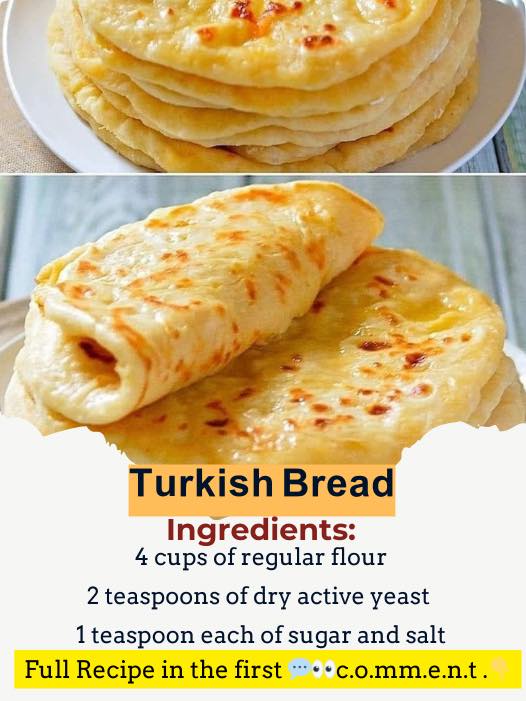Welcome to an immersive culinary journey into the world of Turkish bread, known for its rich flavors, unique textures, and cultural significance. Turkish bread, or “ekmek” in Turkish, is a staple in Turkish cuisine, enjoyed in various forms from soft, pillowy flatbreads to crusty loaves perfect for dipping into flavorful dips and stews. This detailed guide will walk you through making one of the most popular types of Turkish bread: “Pide,” a traditional flatbread that is often shaped like a boat and topped with various fillings.
Introduction
Turkish cuisine is renowned for its diversity and depth of flavor, and bread plays a central role in daily meals. Turkish bread varieties are versatile and can be found accompanying almost every meal, from breakfast to dinner. One of the most beloved types is “Pide,” which can be served plain, topped with ingredients, or filled with cheese, meat, or vegetables. This recipe will guide you through making plain Pide, which can be enjoyed on its own or used as a base for toppings.
Why Turkish Bread?
- Cultural Significance: Bread is a vital part of Turkish culture and cuisine, symbolizing hospitality and sustenance.
- Versatility: Turkish bread can be enjoyed in various ways, from sandwiches to side dishes.
- Flavor and Texture: The combination of a soft interior and a slightly crisp crust makes Turkish bread irresistible.
Health Benefits
- Simple Ingredients: Made with basic ingredients like flour, water, yeast, and salt.
- No Preservatives: Homemade bread is free from preservatives and additives.
- Nutritional Value: Depending on the flour used, it can provide essential nutrients and fiber.
Ingredients
Let’s gather the ingredients needed to make traditional Turkish Pide. This recipe makes 2 large Pide loaves.
For the Dough
- 3 cups all-purpose flour (or bread flour)
- 1 cup lukewarm water
- 2 teaspoons active dry yeast
- 1 teaspoon sugar
- 1 teaspoon salt
- 2 tablespoons olive oil
For the Topping (Optional)
- 1 egg yolk (for egg wash)
- 1 tablespoon sesame seeds or nigella seeds
